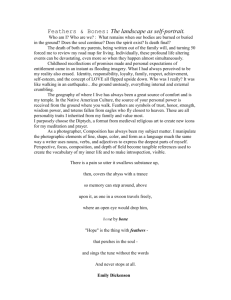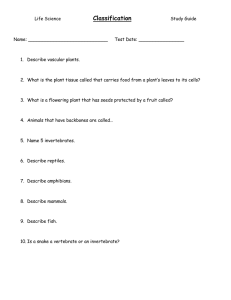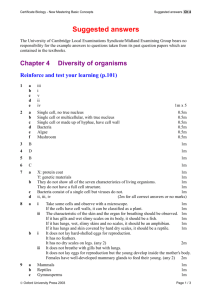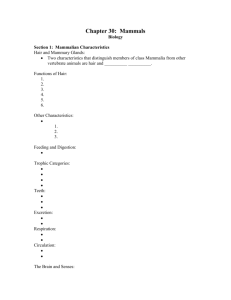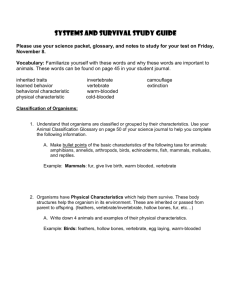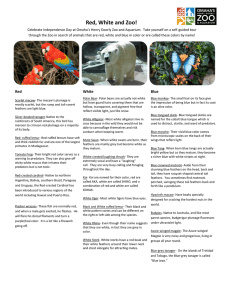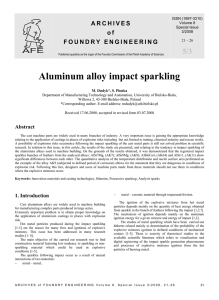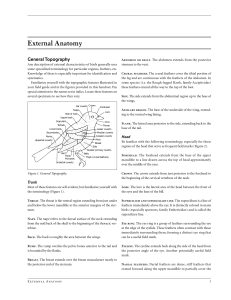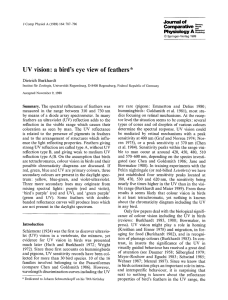Honors Biology Vertebrate Evolution Study Sheet
advertisement
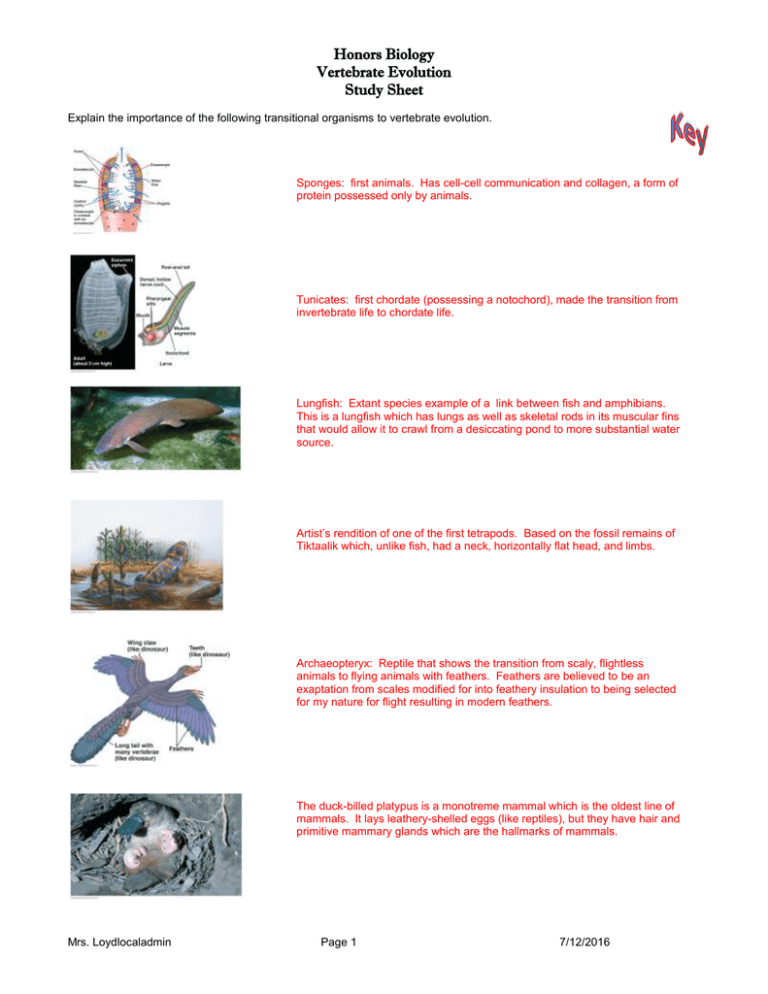
Honors Biology Vertebrate Evolution Study Sheet Explain the importance of the following transitional organisms to vertebrate evolution. Sponges: first animals. Has cell-cell communication and collagen, a form of protein possessed only by animals. Tunicates: first chordate (possessing a notochord), made the transition from invertebrate life to chordate life. Lungfish: Extant species example of a link between fish and amphibians. This is a lungfish which has lungs as well as skeletal rods in its muscular fins that would allow it to crawl from a desiccating pond to more substantial water source. Artist’s rendition of one of the first tetrapods. Based on the fossil remains of Tiktaalik which, unlike fish, had a neck, horizontally flat head, and limbs. Archaeopteryx: Reptile that shows the transition from scaly, flightless animals to flying animals with feathers. Feathers are believed to be an exaptation from scales modified for into feathery insulation to being selected for my nature for flight resulting in modern feathers. The duck-billed platypus is a monotreme mammal which is the oldest line of mammals. It lays leathery-shelled eggs (like reptiles), but they have hair and primitive mammary glands which are the hallmarks of mammals. Mrs. Loydlocaladmin Page 1 7/12/2016
